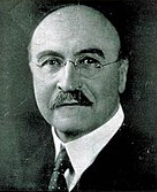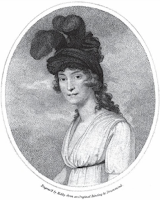‘I felt more powerfully than ever today what poems people are; not the part of them that speaks, but the mysterious, intricate network of thoughts and feelings which remain unexpressed.’ This is from an early diary of Ruth Crawford Seeger, American composer and folk music specialist, who died 70 years ago today. Her diaries, though not published, have underpinned at least two biographies.
Crawford was born in East Liverpool, Ohio, the second child of a Methodist minister. The family moved several times during her childhood, settling in 1912, in Jacksonville, Florida. Her father died of TB, and her mother then opened a boarding house to help make ends meet. Having shown promise in poetry and music from an early age, she started, in 1913, taking piano lessons with Bertha Foster (founder of the local School of Musical Art). Further studies followed with Madame Valborg Collett. After leaving high school in 1918, she began to pursue a career as a concert pianist, sometimes performing at musical events. She also began teaching at Foster’s school and began composing for her pupils. In 1921, she moved to Chicago, and enrolled at the American Conservatory of Music.In Chicago, Crawford studied piano with Heniot Levy and composition/theory with Adolf Weidig; she also wrote several early works. After receiving her degree in 1924, she enrolled in the master’s degree programme. That year, she took up private piano lessons with Djane Lavoie-Herz, a teacher who introduced her to the ideas of theosophy, the music of Alexander Scriabin, and to a wider world of artists and thinkers. She moved to New York where she studied composition, and where she worked as a piano teacher for the children of poet Carl Sandburg. Through Sandburg, she became interested in American folksongs, contributing arrangements to his 1927 book The American Songbag. In 1929 she began study with Charles Seeger. The two married in 1932 with Ruth assuming responsibility for Charles’ children by a previous marriage, including Pete, soon to become America’s best known folksinger (see They mix it up almost as I do). With Charles, she had two children, Peggy and Mike, both of whom also became renowned folksingers and teachers.
In 1936, the Seegers moved to Washington, D.C. to collect folk songs for the Library of Congress. Ruth acted as transcriber for the book Our Singing Country and, with Charles Seeger, Folk Song USA, both authored by John and Alan Lomax. Subsequently, she published her own pioneering collection, American Folk Songs for Children, in 1948. This and other Crawford Seeger books of the kind came to be regarded as key texts in primary music education. Having composed little since 1934, she returned to serious composition with the Suite for Wind Quintet in 1952. By the time it was complete, she learned she had cancer. She died on 18 November 1953 aged only 52. Further information is available from Wikipedia, Peggy Seeger’s website, The New York Times, Encyclopaedia Britannica, or the Los Angeles Public Library.
Seeger kept a diary from the age of 13 though only portions are extant. Those from her late teens cover daily activities, some philosophical musings and self-analysis. Later entries (1927-1929) ruminate on her first serious love affair, her decision nonetheless to pursue a career in New York, and the beginning of her long friendship with Marion Bauer. Her diaries have not been published as far as I can tell, but at least two biographies mention them often. Ruth Crawford Seeger: memoirs, memories, music by Matilda Gaume (Scarecrow Press, 1986) is freely available at Internet Archive (log-in required). This provides a number of direct quotes from the diaries, and, where not clear in the narrative, their dates are given in the extensive notes at the back of the book. Here are several examples.
6 January 1918
‘What is the soul? When it leaves the body we do not see it. And where is God? Everywhere? But what is he? Why can’t I know all these things? Because thou shouldst then know as much as God. Yes, true. But how -how I want to know it all.’
28 October 1927
‘I felt more powerfully than ever today what poems people are; not the part of them that speaks, but the mysterious, intricate network of thoughts and feelings which remain unexpressed.’
16 August 1929
‘Marion Bauer - she has freed me - I am writing again. She asks me to lunch on Tuesday; after lunch she plays some of her preludes . . . One thing I learned from this beautiful afternoon with Marion Bauer was that I had been forgetting that craftsmanship was also art. I have not been composing and have felt tense, partly because I relied on inspiration only. I was not willing to work things out; I felt that inspiration, emotion within, but when it started to come out, my attitude was so negative that the poor thought crept back into darkness from fear. Discipline. We talked on discipline a few nights ago - necessary - ear-training - hearing away from the piano. Lie on your couch and hear and study Bach chorales. Make yourself hear; also improvise, not wildly, but making your self hear the next chord. Courage, Marion Bauer tells me - work. You have a great talent. You must go ahead. I do not mean that you must not marry, but you must not drop your work.’
17 February 1930
‘Only God and my creditors know how poor I am. I wish my creditors were like God. He takes his pay too, but he does it gradually, and you don't realize it until the peanut bag is empty. Then he blows into it and claps it between his two hands, and throws away a bag that isn’t any good any more because it has a hole in it. All the time he is putting peanuts into new bags, and taking them out of old bags, and there is a regular stock exchange of peanuts. But he isn’t the kind of creditor who sends you a bill.’
More recently, Judith Tick in her biography, Ruth Crawford Seeger: A Composer’s Search for American Music, (Oxford University Press, 1997), also available to borrow at Internet Archive, does not include so many complete quotes, but she does weave short excerpts into her narrative, for example, as follows:
Page 22
‘Ruth Crawford found her way to composition through the routine of playing through music for her small pupils. A few notations in her diary outline the steps. On December 18, 1918, Ruth “looked over more music [for teaching] and improvised some.” January 3, 1919: “Have made up another piano piece - the 2nd one,” she wrote, adding, “Love to do it!” She showed her compositions to a Mr. Pierce, who perceived talent and decided to teach her some theory. He gave her what she later belittled as “four dry lessons from Chadwicks harmony book”; but on January 17, she wrote in her diary that she was “crazy about harmony.” Two piano pieces, Whirligig and The Elf Dance, date from this period. The Elf Dance was pronounced “real cunning” by Mrs. Doe, a teacher at the School of Musical Art, and a “cute thing” by Madame Collett.’
Page 57
‘Sandburg, moreover, stood on the shoulders of writers whom she perhaps loved even more: Emerson, Thoreau, and Whitman. Crawford opened her 1927 diary with a quotation from Walden Pond, underlining Thoreau’s admonition to “probe the universe in a myriad points.” She alluded to Whitman frequently. One diary entry recounts a telling incident at Djane Herz’s studio: “I pick up Leaves of Grass and find a good many of the first verses of Song of Myself underlined. I feel at home.” Whitman’s cosmic metaphysics inspired her. “His constant reiteration of the oneness of himself with all other creatures - a sense of bigness” was an article of faith in her aesthetic theology.’
Page 60
Despite her success, 1926 was a difficult year. One diary entry refers to 1926 as a “nightmare,” with a darker reference to one “bitter, irritable day” in which “more sensitive morbid people become suicides. My wretchedness comes from the returning to my eyes of last year’s pulling, wracking strain, which makes practice and composing hard.” Little else is known about this crisis of nerves and health, or about an operation that Ruth had in the fall of 1925 to alleviate these symptoms. They abated but did not disappear entirely, and could trigger what Crawford described as spells of “depression.” ’
Page 90
‘Clara Crawford slipped into a coma a few days before her death on August 14. In the last diary entry Ruth’s own sense of loss finally tempered her journalistic fever, as she began to grieve. “I find myself often thinking of something I want to tell or ask Mother. Can it be that I shall never be able to talk to her again? It seems incredible. How little I realized how close she was to me, and what a child I still was, and how very much her interest and love and thoughts for my music were woven into my life! I feel stifled to think she will never again be there to hear and sympathize; I look forward through the years, and feel tragically alone. I begin to wonder how I can live. And to think that I had been feeling during the past year or two a desire to live alone, never dreaming how painfully soon Fate would answer my misplaced and erroneous desire. . . How pitifully small was my realization of my love and need for Mother. . . I sit here by her bedside and though she breathes and I feel comfort just in holding her hand on my knee, yet my heart aches and I feel like one in prison, for I can tell her nothing, and if I could, she could not answer.” ’









